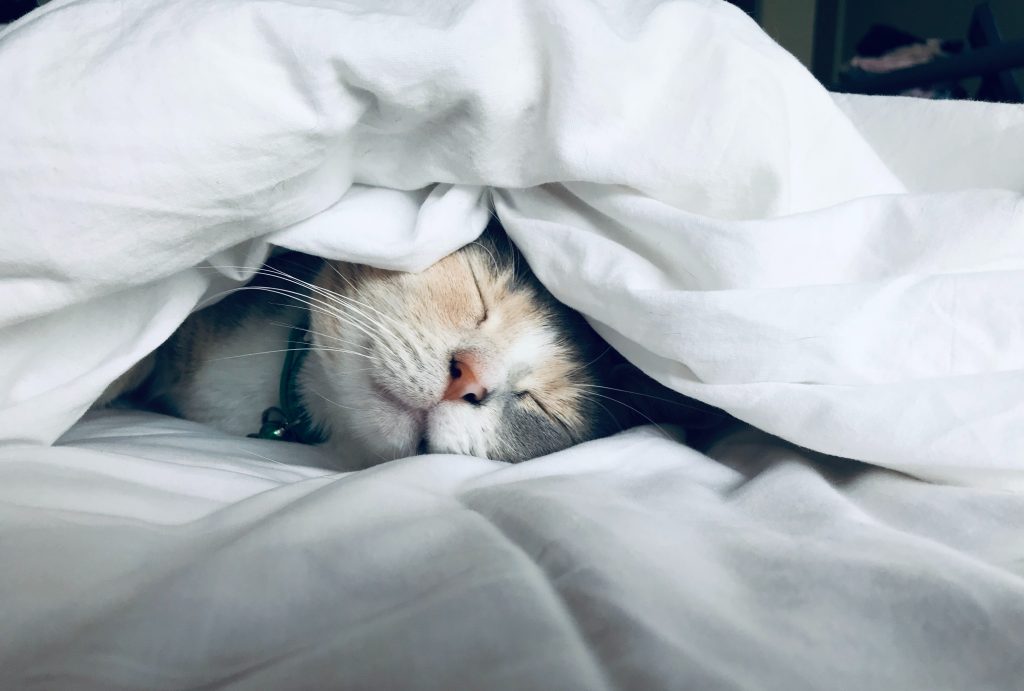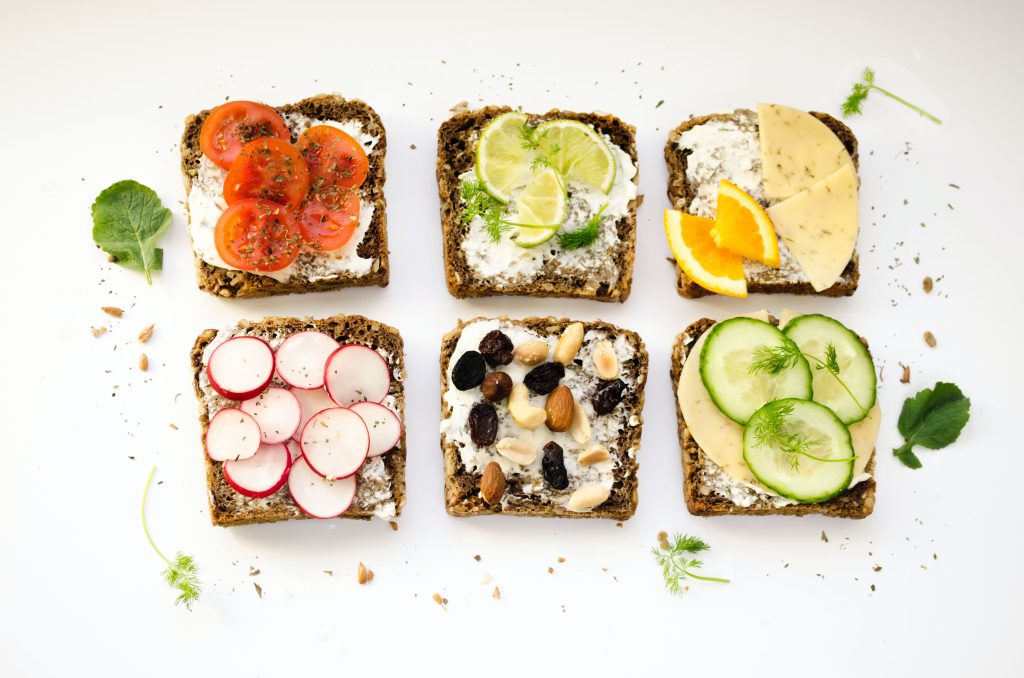While it’s important to do what we can to keep ourselves as well as possible throughout the year, it’s extra important during times of stress, such as exam season, and to make sure that we optimise the levels that we can perform at. Self-care is any act that we do that helps to either keep us alive, or that helps to keep us healthy; either physically or mentally. While eating vegetables, or getting a good nights’ sleep is not going to cure a mental illness, making sure you are taking care of yourself as best you can will make dealing with mental health struggles that little bit easier, and will help you keep your feelings of stress during exam times at bay.

Sleep and sleep hygiene We’ve all heard that sleep is good for us – approximately 7-9 hours per night to be exact. But sometimes, especially during times of stress, getting to sleep, staying asleep, or getting good quality sleep can be much easier said than done. It’s important to not that the occasional late night or all-nighter won’t cause harm, but it can disrupt your routine, and that’s an important part of sleep hygiene as we’ll go through below. Regularly staying up late or not all night can cause poor concentration, difficulties with problem soling and an inability to retain information, as well as poor mental health, all of which are things we’d prefer to avoid especially around exam time. It can help to do something non-exam related before bed to help you wind down, and so your brain can learn when it’s time to shut off. Trying staying away from screens as blue light can disrupt the processes that help our brain prepare for sleep. Consider having a warm bath or shower to help relax both your body and mind. Avoid caffeine and sugar for a good period of time before sleep as well as other stimulants as they will make it more difficult for you to fall asleep. Our brains thrive with routines, especially when it comes to bedtime. Create a bedtime that works for you, and over time your brain will associate the actions in that routine with winding down and getting ready for sleep. Include your shower if you have one at night, your general night-time hygiene routine, reading or journalling, and keep it the same each night. Have a set bedtime and getting up time. If you’re struggling to get to sleep, there are some things you can try. Sleep stories can be found online and can help distract our minds as we go to sleep. If you’re struggling to shut your mind down, write your thoughts down and if you can think of them, write down potential solutions to any worries you have. Assign some time to allow yourself to do nothing but worry and ruminate and once that time is over, consciously tell yourself that the time to worry is over. As worrying thoughts arise throughout the day, tell yourself that you will think about them when your assigned worry time comes around. While many of us have no choice but to study in our bedrooms, where possible, try to avoid using your bed as a place to study. If you do have to use your bed to study, make sure to clear it fully away a good period of time before you need to get into your bed to sleep to try and separate the idea of bed-as-study and bed-as-sleep in your mind. As much as possible, keep your space tidy and clutter free. Keep your bed clear too, and try to keep your room a bit cooler than elsewhere in your house if you can. Try to keep the room quiet – if there is a lot of noise you can’t control, or if you find a completely quiet room unnerving, try using soundscapes or white noise. If you are really tired during the day, remember that naps aren’t just for toddlers. Keep them short (20 minutes or so) and set an alarm so you can be sure not to oversleep if you are taking them though. If you do take naps, keep your evening routine and bedtime the same as usual. Eating and drinking Eat regular meals – include vegetables and protein as much as possible. Eating slow energy release foods especially can help – these include sourdough, multigrain breads, oats, nuts and vegetables. Try as much as possible to not skip meals, especially breakfast. Stay hydrated; a body water loss of just 1-2%, which is considered mild, and would occur during regular daily activity, causes impaired cognition. This means that becoming even a small bit hydrated, where you might not even notice, can be enough to affect your ability to think. Try to limit your intake of caffeine and sugary drinks as while they might give you an initial boost, the lift won’t last and the crash can make it hard to concentrate. They can also interfere with your ability to sleep. When planning your time, build in time for grocery shopping and meal/snack prep. Having things planned and/or ready ahead of time will help stop us from ending up eating fast food or unhealthy snacks. If you know you will be studying away from home, bring a nutritious packed lunch and snacks – bananas make good study snacks, as do nuts. When having meals, try to eat away from your study space so you can be mindful with your eating habits. Other tips and advice Keep a check on your intake of drugs and drugs or other substances – they can become a crutch for coping with our emotions if we aren’t careful, and while they may help us feel better in the short term, in the long-term it will make things worse overall. While it might be tempting to spend all of our time studying in order to make sure we cover everything, breaks actually help us process what we have learned. Getting outside in particular can help, and if you can do it while it’s bright outside, even better. If you take any medications, make sure to continue to take them at the same time. If you attend therapy, keep attending where possible. If you are struggling in any way with your mental health, reach out for help. If you’ve read this, and you’re still struggling to study, reach our for help to your lecturers, tutor, librarian, SU, family and friends, campus counsellor or GP for help. You don’t ever need to struggle on your own. No matter how you feel an individual exam our the overall exam period has gone for you, remember that is not a reflection of who you are as a person. You are important and of value, and no exam or assessment is worth compromising your wellbeing. If you are struggling with your mental health in a way that is impacting your life, please reach out for help. Sources of support are available here.



Recent Comments